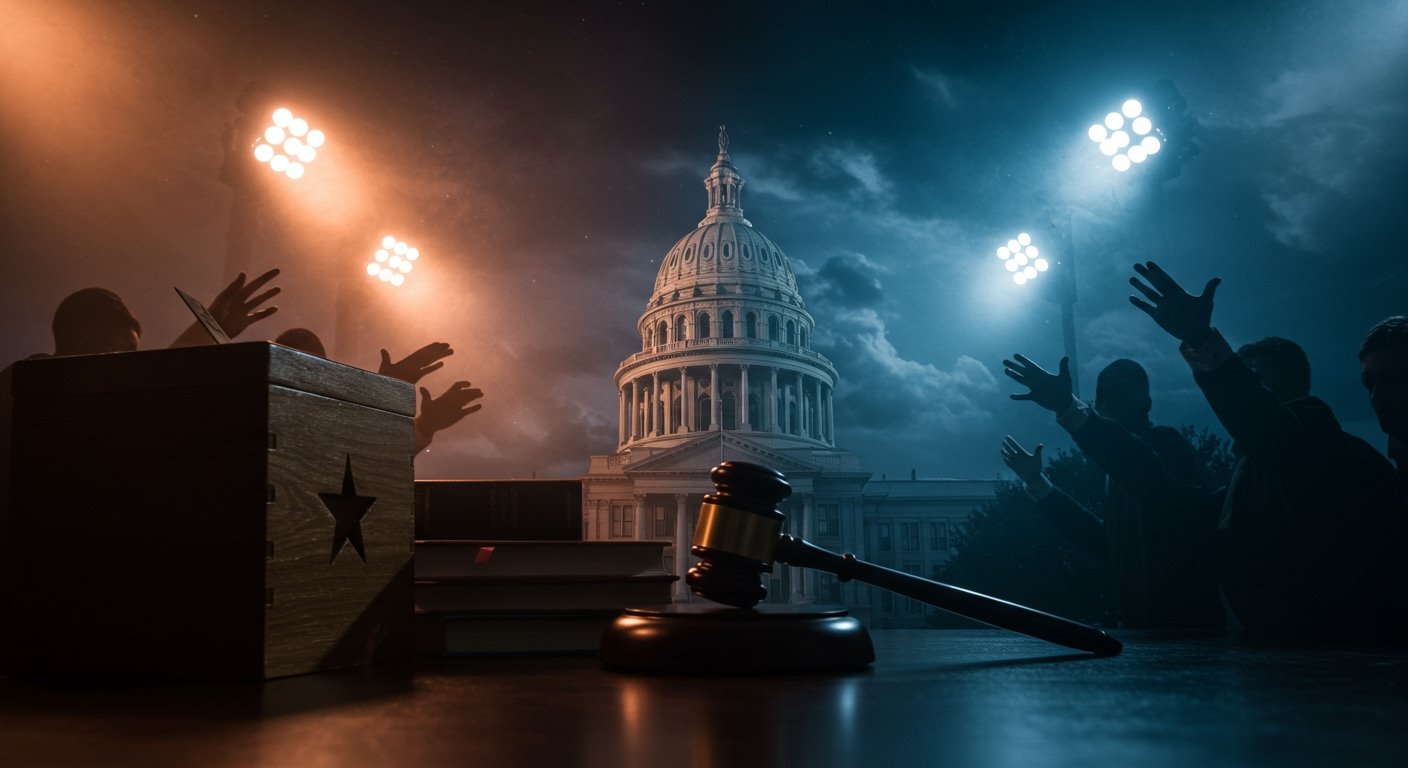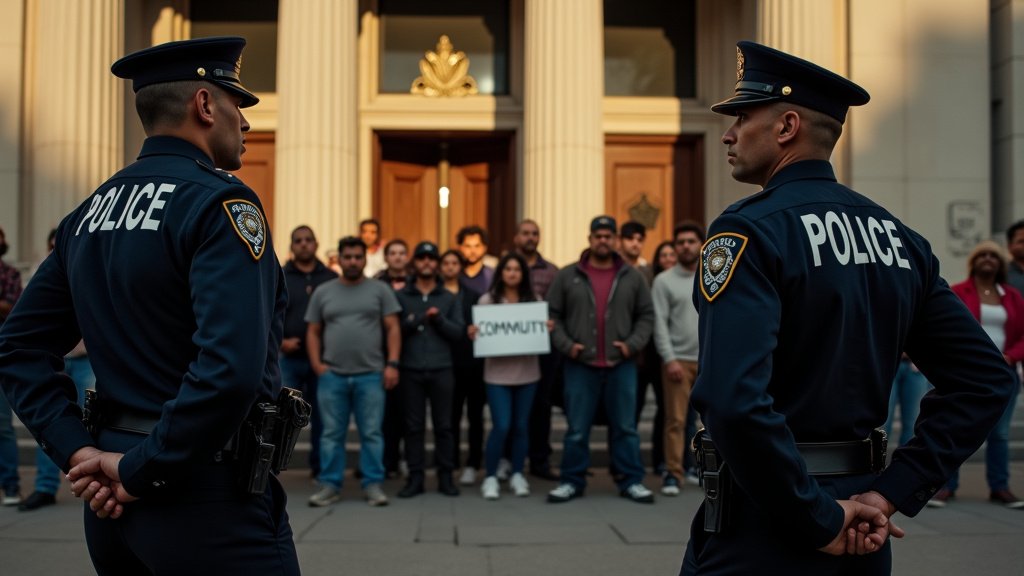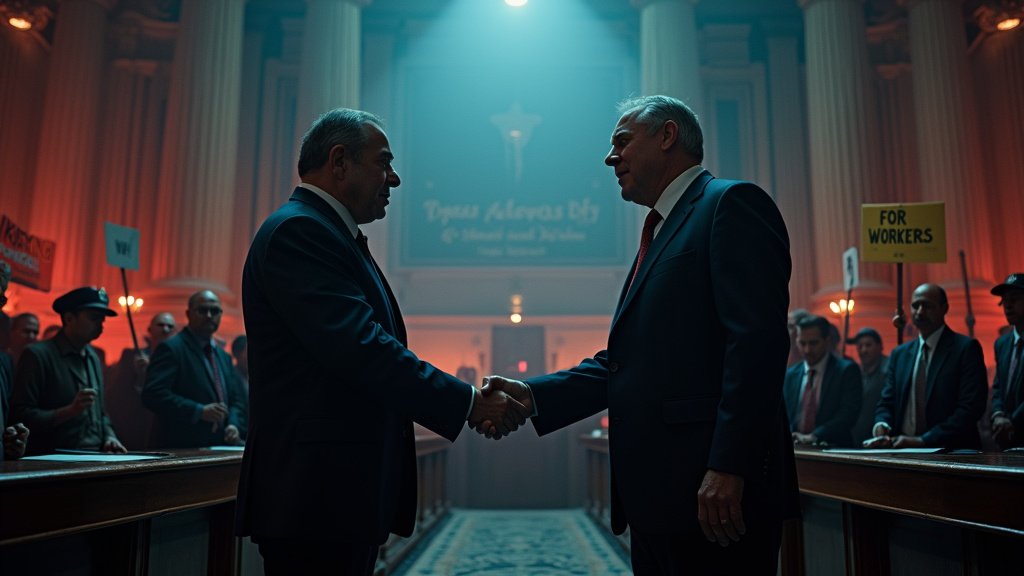HOUSTON, TX – Recent public discourse in Texas continues to highlight deep political divisions, as reflected in a collection of Letters to the Editor published by the Houston Chronicle. These letters offer sharp critiques of state-level policies, educational leadership, and the tone of political debate, echoing the broader national conversation about ideological conflict.
The opinion section, notably titled “The left isn’t the one promoting political violence | Opinion,” sets a provocative stage for the reader submissions. This title itself references a related element within the section – likely a cartoon or accompanying editorial comment – that suggested political figures on the right should cease employing rhetoric perceived as promoting hate.
Critique of Higher Education Policy and Tactics
Among the voices featured is Thomas Temple of Houston, who penned a letter in response to a previous Houston Chronicle editorial published on June 16th. That earlier editorial, titled “‘Texas Fight!’ Save our universities from brain drain | Editorial,” focused on concerns regarding the state of higher education and its potential impact on attracting and retaining talent within Texas.
Temple’s letter directly engages with this theme, leveling significant criticism against State Senator Brandon Creighton and his legislative efforts, specifically citing Senate Bill 37 (SB 37). While the summary doesn’t detail the specifics of SB 37, Temple’s critique centers on the methods employed by Senator Creighton in pursuing his agenda concerning higher education.
In a striking comparison, Temple draws a parallel between Senator Creighton’s tactics and those historically associated with Senator Joseph McCarthy during the 1950s. This comparison evokes the era known for aggressive investigations, loyalty oaths, and accusations often perceived as unfounded or politically motivated. Temple explicitly accuses Senator Creighton of utilizing “bullying and character assassination” in matters related to higher education.
Such strong language underscores the intensity of the debate surrounding academic institutions in Texas. Critics often voice concerns about legislative actions impacting tenure, curriculum, diversity initiatives, and the overall academic freedom within universities, viewing them as politically motivated intrusions.
Temple’s letter doesn’t just critique; it also suggests avenues for resistance against the perceived negative impacts of such policies and tactics. He proposes multifaceted approaches, including utilizing the ballot box – suggesting electoral action to change representation – engaging through the courts – indicating potential legal challenges to legislation – and impacting legislators’ business interests, a tactic aimed at applying financial or economic pressure.
Scrutiny on Local School Leadership
Further reflecting the breadth of constituent concerns, the same opinion section includes a letter from Mark Niles, also of Houston. Niles shifts the focus from state universities to local school administration, directing his criticism towards HISD Superintendent Mike Miles.
The letter specifically targets the decision to extend Superintendent Miles’ contract and provide him with a raise. This decision has been a point of contention for some members of the community and observers of the Houston Independent School District, particularly amid ongoing changes and reforms implemented under Miles’ leadership.
Niles articulates his disapproval by describing Superintendent Miles’ performance as “mediocre.” This assessment, while concise, encapsulates a viewpoint held by those who may be dissatisfied with the results or methods employed by the superintendent since his appointment. Debates surrounding school leadership, performance metrics, and resource allocation are frequent flashpoints in local politics, and Niles’ letter contributes to this ongoing conversation within Houston.
Connecting Specific Grievances to Broader Political Rhetoric
The inclusion of these distinct letters – one focused on state higher education policy and political tactics, the other on local school leadership – under the provocative headline “The left isn’t the one promoting political violence | Opinion” highlights a deliberate editorial choice by the Houston Chronicle.
This framing suggests an attempt to connect specific policy debates and criticisms of political figures (like Senator Creighton and Superintendent Miles) to the larger, highly charged discussion about the nature of political discourse and the responsibility for inflammatory rhetoric. By placing these letters within a section that implicitly challenges the notion that the left is the primary source of political violence and points a finger at the right’s rhetoric, the newspaper positions these individual critiques as part of a broader ideological struggle over the tone and tenor of political engagement.
The referenced cartoon or accompanying commentary likely serves to reinforce this theme, suggesting that heated, potentially harmful political language originates from a specific part of the political spectrum. The letters then provide concrete examples of the outcomes or manifestations of political action and debate that are drawing strong reactions from citizens.
Conclusion: Reflecting a Polarized Landscape
Ultimately, this collection of letters in the Houston Chronicle serves as a microcosm of the polarized political landscape currently defining Texas and the United States. From debates over university governance and alleged McCarthy-era tactics to disputes over the performance and compensation of local school leaders, citizens are actively engaging with and pushing back against decisions and styles of leadership they find objectionable.
The editorial framing of these diverse opinions under a headline directly addressing political violence and rhetorical responsibility underscores the media’s role in highlighting not just the policy disagreements themselves, but also the intense emotional and ideological dimensions of contemporary politics. The critiques from Thomas Temple and Mark Niles, while focused on distinct issues, collectively contribute to a picture of a state grappling with significant political tension and a citizenry ready to voice strong dissent and explore various avenues for pushing back against perceived overreach or underperformance by those in power.






